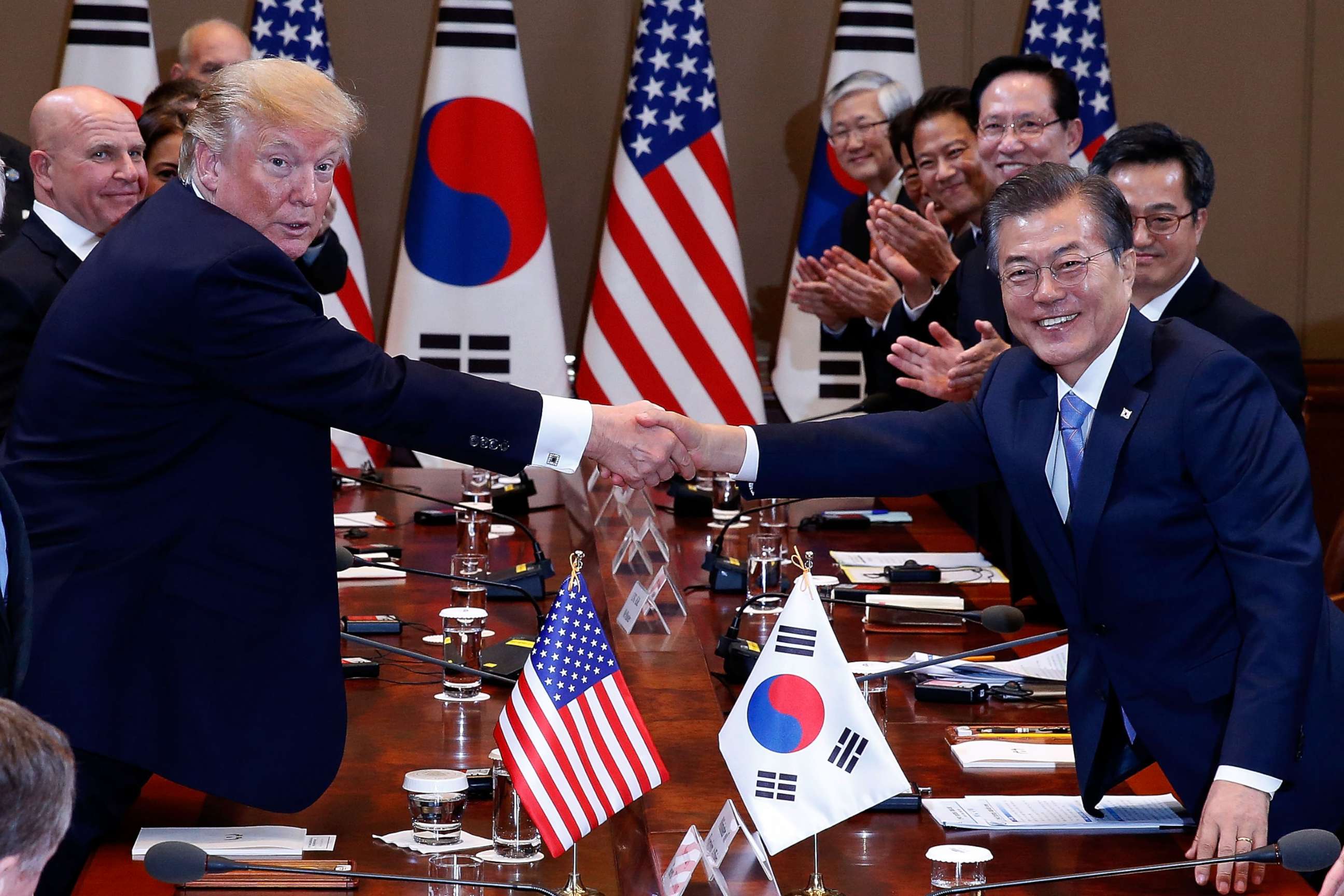ANALYSIS: Kim Jong Un pitting South Korea against US by re-establishing talks
The South may have to choose between its ally and further talks with the North.
SEOUL, South Korea -- North and South Korea officially resumed direct contact through a military hotline on Wednesday, but while the move engendered optimism among many South Koreans, there are plenty of people on both sides of the globe questioning the motives of dictator Kim Jong Un.
The re-opening of communication was initiated to discuss sending a North Korean delegation to the Winter Olympic Games starting Feb. 9 in Pyeongchang, South Korea, but the initial step was a big one in a chilly relationship between the two countries.
The direct communications line between the two Koreas had been cut off two years ago by North Korea in retaliation for the shutdown of a joint-industrial park in Kaesong, North Korea, by South Korea's previous administration, led by conservative Park Geun-hye. The closure was a result of Pyeongyang’s continuous nuclear provocations and suspicions that the economic benefits from the industrial complex were trickling into their nuclear weapons program.
“I believe it signals a move toward an environment where communication will be possible at all times,” South Korea’s chief presidential press secretary Yoon Young-Chan said.
The move buoyed optimism in Seoul that this hotline could be a meaningful step forward to discuss a long-term peaceful resolution to the nuclear crisis, and not just a discussion of sending a delegation to the Olympics.
“They certainly intend to keep close to South Korea for the time being, but if you ask whether this will extend to high-level official talks beyond the Olympics, they are not committed,” Youngshik Bong, professor of North Korean Studies at Yonsei University, pointed out. “It’s a clear strategy to raise the stakes.”
The sudden proposal by North Korean leader Kim Jong Un on New Year’s Day to participate in the games was a long-awaited surprise.

South Korean officials had continuously signaled to the North in the past year that the delegation would be welcome without preconditions, according to local media.
“South Korea has always kept a two-track policy on North Korea, putting pressure with the international community and stressing unity at the same time,” said Daniel Pinkston, a veteran North Korea analyst and lecturer in international relations at Troy University, Seoul Campus. “But given that Kim Jong Un and his inner circle of leadership likes sports, I think this is more of a personal interest and preference.”
For skeptics, including the conservative opposition party in South Korea, this offer by the North Korean leader is seen as a charade and a clever tactic, on North Korea's part, to drive a wedge between South Korea and its ally, the United States.
“We see no point in a dialogue that only discusses the Pyeongchang Olympics without talking about the nuclear issue,” said opposition Liberty Korea Party spokesperson Jeong Tae-ok. “North Korea will surely make unreasonable demands, starting from wanting to be recognized as a nuclear state.”
A U.S. official confirmed to ABC News on Tuesday that there has been activity in North Korea consistent with preparation for a ballistic missile launch. Should they launch an ICBM in the coming days or weeks, South Korea will be in the awkward position of choosing between continuing talks with North Korea, or siding with President Donald Trump's unequivocal condemnation of escalating nuclear tests.
U.S. Ambassador to the United Nations Nikki Haley laid out the U.S. position on Tuesday, saying, "North Korea can talk with anyone they want, but the U.S. is not going to recognize it or acknowledge it until they agree to ban the nuclear weapons that they have." Sen. Lindsey Graham, R-S.C., also condemned the idea of South Korea acquiescing to the North on Twitter following Kim's speech on Monday, saying he was "confident" the South would reject the "absurd" notion of including North Korea in the Olympics.
“North Koreans know that if they are talking, it will buy time for them to keep testing and developing weapons,” warned Robert E. Kelly, professor of political science and diplomacy at Pusan National University. “They have a structural interest in extending this olive branch. These are not real concessions.”
ABC News' Hakyung Kate Lee, Yejin Jang, Jaesang Lee and Luis Martinez contributed to this report.




